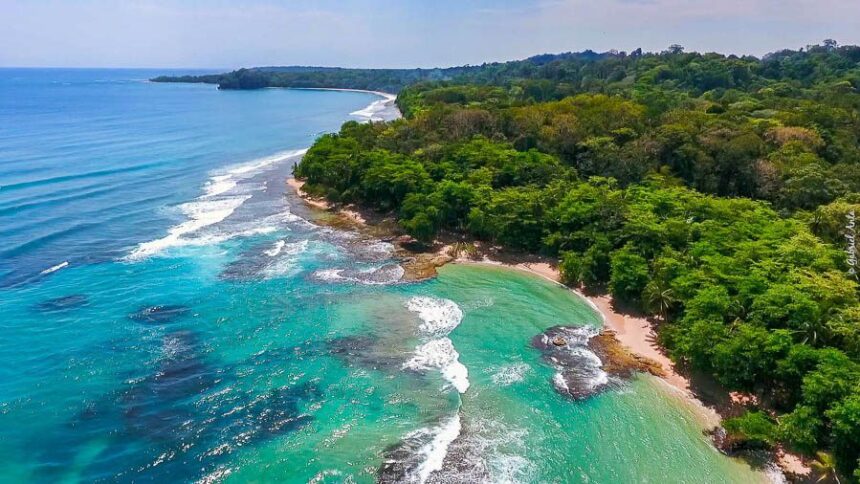Picture a teaching setting surrounded by a rainforest, beautiful beaches, and a bright culture. In Costa Rica, educators have a rare chance to merge their love for teaching with exploration and research in one of the most breathtaking locations on the planet. This article looks into the opportunities and experiences that contribute to making teaching in Costa Rica an unforgettable journey.
Teaching in Costa Rica
Costa Rica has many options for teachers, and English teachers are in high demand. Teaching English is perhaps the best opportunity for foreign teachers in the country. The demand for English teachers is particularly strong in urban areas and tourist destinations like San Jose, where English language proficiency is essential for economic development
Teachers can find positions in various educational settings, including public schools, private language institutions, international schools, and even private tutoring. Many NGOs and community programs are dedicated to improving English proficiency in underserved communities. Volunteering is a popular option for those interested in making a difference in rural communities. Volunteer assignments typically involve teaching English or other subjects to children and adults, focusing on improving literacy and education where resources are limited.
While it usually requires a TEFL (Teaching English as a Foreign Language) certificate, some positions may only require fluency in English and a bachelor’s degree. This makes it accessible to a wide range of teachers, from three-day graduates to experienced teachers. Here, you can find more information about English teaching jobs in Costa Rica.
Travel and Exploration
As a teacher in Costa Rica, you can explore the country’s stunning natural beauty and cultural riches at your leisure. With locations ranging from beaches to rainforests, Costa Rica offers a variety of travel experiences that can be enjoyed even on a coach budget.
Costa Rica is first and foremost known for its natural beauty, and many outdoor activities like hiking, beach visits, and exploring national parks are free or affordable. Parks like Manuel Antonio, Arenal Volcano, and Tortuguero offer everything from hiking and wildlife watching to relaxing on beautiful beaches. Entrance fees to national parks typically cost around $10 to $20. The Pacific and Caribbean coasts are dotted with stunning beaches. Popular spots like Jaco, Tamarindo, and Puerto Viejo are perfect for a quick weekend getaway, offering a mix of relaxation and activities like surfing, snorkelling, and diving. If you prefer cooler climates, visit mountain towns like Monteverde or La Fortuna. Monteverde is famous for its cloud forests and canopy tours, while La Fortuna is known for the Arenal Volcano and natural hot springs.
In addition to the country’s beautiful natural landscape, Costa Rica also has a vibrant cultural calendar, with festivals and events throughout the year. Participate in traditional celebrations such as the Palmares Festival, Fiestas de Zapot, or the Independence Day Parade. These events allow you to explore Costa Rican traditions and are great fun to attend.
How can you keep your travel adventures affordable? Costa Rica has a wide range of hostels and budget-friendly accommodations, especially in tourist areas. Staying in hostels or guesthouses not only saves money but also allows you to meet other travellers and share experiences. Additionally, utilise Costa Rica’s extensive and affordable bus system for travelling between cities and regions. Buses are a cost-effective way to explore the country, with intercity fares ranging from $5 to $20.
Living in Costa Rica
One of the most significant benefits of teaching in Costa Rica is the opportunity for deep cultural immersion. Costa Ricans, or Ticos as they are commonly known, are known for their warmth and hospitality, making it easier for foreign teachers to feel at home.
Living and working in Costa Rica allows teachers to engage in cultural exchange daily. This experience includes learning the Spanish language, understanding local customs, and participating in traditional festivals and events. Additionally, the close-knit nature of Costa Rican communities often leads to strong bonds between teachers, students, parents, and fellow educators. These relationships enhance the overall teaching experience and provide a sense of community.
The cost of living in Costa Rica can vary widely depending on your lifestyle, location, and personal preferences. Overall, it is generally lower than in many Western countries, but there are still significant factors to consider when planning your budget as a teacher.
In cities like San José, housing costs are higher, particularly in popular neighbourhoods. Renting a one-bedroom apartment in the city centre can cost between $500 to $1,000 per month. In contrast, rural areas or smaller towns offer more affordable options, where similar accommodations might range from $300 to $600 per month. Many teachers choose to share housing with other expats or locals to reduce costs. Depending on the location, shared accommodations can bring rent down to as low as $200 to $400 per person.
Basic utilities (electricity, water, garbage) typically cost $50 to $100 per month. Internet costs range from $30 to $60 monthly, depending on the speed and provider.
Groceries can be relatively inexpensive, especially if you shop at local markets where fresh fruits, vegetables, and local staples are abundant. Monthly grocery costs can range from $200 to $400.
Combining Teaching and Travel
Costa Rica is known for its “Pura Vida” lifestyle, which emphasises a balance between work and relaxation. Many teaching positions offer flexible schedules, ideal for exploring the country’s natural beauty.
Teaching positions, particularly those in private institutions or volunteer programs, often come with flexible working hours. This flexibility is ideal for educators who want to take advantage of their time in Costa Rica to travel and experience the country’s diverse landscapes. Look for teaching jobs with flexible schedules, such as part-time positions or long weekends, allowing you to travel frequently.
Take advantage of Costa Rica’s compact size to explore different regions on weekends. Whether visiting nearby beaches, hiking in national parks, or exploring small towns, there’s always something new to discover just a few hours away. You can also use school holidays and breaks to embark on longer trips.






